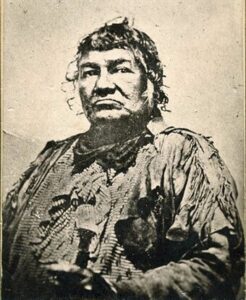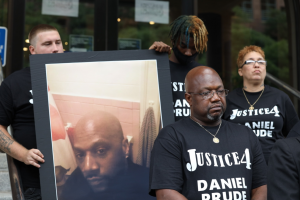If Army veteran Crystal Ellington had known about the disparity between white service members and service members of color in military discipline, the former special operations Black Hawk helicopter mechanic says she never would have enlisted.
Ellington, who is Black, received a medical retirement under honorable conditions in July, after spending four years stationed at Joint Base Lewis-McChord, which is located 20 minutes south of Tacoma, Wash. She recalls being treated differently than her white counterparts many times, but one instance stands out because it involved her family.
On Thanksgiving weekend in 2018, then-Spc. Ellington flew into Daytona Beach International Airport on authorized leave. Ellington fondly recalls her son Gary Jr., who was 2, bounding into her arms with a huge smile, just as he does every time mom comes to visit. Gary Jr. lives in Florida with his father, and the distance between the two meant visits were less frequent than Ellington would have liked.
The two enjoyed the holiday together and on Sunday, Ellington hopped on a plane headed back to the Pacific Northwest. She had a layover in Chicago, but a snowstorm delayed the redeye flight that would’ve returned her to base early Monday morning — just when her superiors expected her back.
Ellington was delayed by six hours, but still managed to get back to base later that Monday. Upon her return, “almost instantly,” she says, she received an Article 15, a nonjudicial punishment for lower-level offenses. She was charged with being absent without leave.
In an Article 15 proceeding a commander adjudicates charges and decides punishment. In Ellington’s case, her superiors, all of whom were white men, assigned her extra duty manual labor. As Ellington swept, mopped, painted the command hallway, took out trash and mowed lawns around base, she couldn’t help but feel that the entire ordeal was unfair. She recalls that only some service members who returned to base late faced repercussions. Those who got away with it were always white. Ellington calls this disparity an overt pattern, “a situation that was well known, a situation that was not hidden, but nothing was being done about it.”
Data show that Ellington’s experience with unequal punishment based on race is a problem across the armed forces. A 2019 Government Accountability Office reportfound that even when controlling for factors like rank and education, Black and Hispanic service members across the armed forces are more likely than white service members to be investigated, receive nonjudicial punishments such as an Article 15 or be court-martialed for alleged violations of the Uniform Code of Military Justice. Veterans and military experts say that racial bias in military discipline has become a serious threat to national security.




